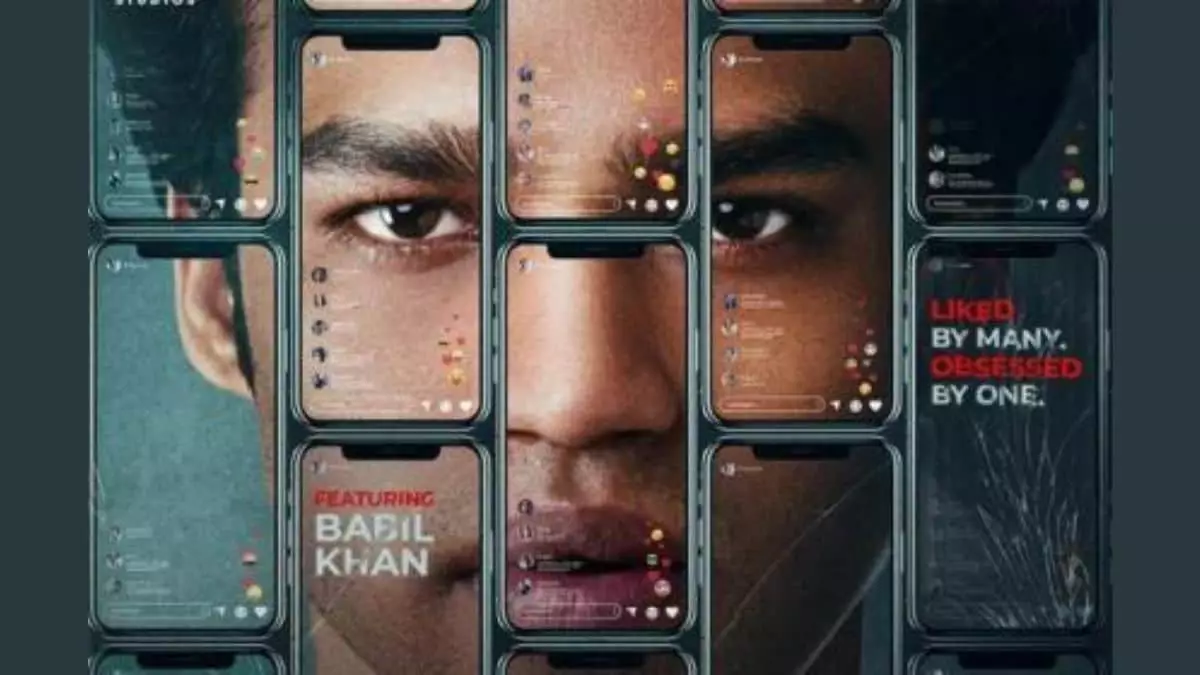In an age defined by incessant scrolling and online validation, Babil Khan’s upcoming film, Logout, emerges as a stark warning against the perilous consequences of our digital entanglements. At the heart of this social thriller lies an unsettling critique of how technology’s omnipresence can warp our perception of reality, manipulating our self-worth and mental health in insidious ways. As the son of late luminary Irfan Khan, Babil is not just stepping into his father’s artistic legacy; he’s also anchoring a conversation that desperately needs to be had in our hyper-connected world.
Plot Overview: A Journey Into the Digital Underworld
The movie follows Pratyush, brilliantly portrayed by Babil Khan, a young man ensnared in the web of online popularity. This millennial protagonist is obsessed with amassing followers, affectionately dubbing them “Pratmaniacs,” showcasing a cultural commentary on the narcissistic tendencies propelled by social media platforms. The plot thickens as Pratyush spirals deeper into his digital dependence, only to discover that the very tool intended for empowerment has become a controller of his existence.
With Rasika Dugal stepping into the role of a compassionate therapist, the film cleverly juxtaposes the personal struggles of individuals struggling with their digital personas against wider societal issues, such as cyberbullying and digital burnout. This exploration of intertwined identities, where the online self often overshadows the real one, opens the door for a more profound dialogue about mental health in an increasingly digitized age.
Societal Reflection: A Mirror to Our Lives
Logout serves not merely as entertainment but as an urgent mirror reflecting the unsettling reality of contemporary society. In a world where online engagement frequently supersedes genuine human connections, it remains vital to confront the truth: what are we sacrificing for fleeting online validation? The film dares to venture into this uncharted territory, revealing the psychological toll that digital dependency exacts on individuals and communities alike.
The narrative’s authenticity resonates well, as it encapsulates experiences that millions face today. The looming question emerges: are we, too, victims of a digital narrative that prioritizes followers over friends? The beauty of this cinematic experience lies in its ability to incite self-reflection, urging viewers to reconsider their relationships with technology while simultaneously addressing pressing topics like gaming addiction and social media obsession.
The Making and Impact of Logout
Directed by the talented Amit Golani and written by Biswapati Sarkar, Logout was birthed under the banner of Digital 18 Media Pvt Ltd in collaboration with Posham Pa Pictures. The film’s trajectory from film festivals to a broader streaming audience not only highlights its artistic merit but also its inherent significance in our modern discourse. Its recent screenings at prominent festivals such as the Indian Film Festival of Melbourne and the River to River Florence Indian Film Festival indicate a growing recognition for narratives that challenge societal norms and provoke thought.
The buzz generated among younger audiences on social media platforms exemplifies the film’s relevance. As millennials and Gen Z engage with its themes, there is an inherent responsibility to foster conversations around mental health and digital habits. The film serves as a rallying cry for introspection—a call for individuals to disconnect, at least temporarily, from the suffocating grasp of digital connectivity.
A Call for Change: The Urgency of Reflection
As Logout gears up for its release on Zee5, premiering on April 18, 2025, it invites audiences to not only spectate but also engage in a vital narrative deeply rooted in our shared struggles. The film represents a critical juncture, necessitating that viewers not only consume but also question the very essence of their interactions with technology.
In so doing, Babil Khan’s film taps into a cultural zeitgeist ripe for exploration. The importance of its message cannot be overstated; it beckons us to reconsider our digital behaviors and the implications they have on our mental health and social fabric. As audiences prepare to dive into the world of Logout, they are challenged not only to confront the realities depicted on-screen but to undertake their own journey of reflection in the digital age.

